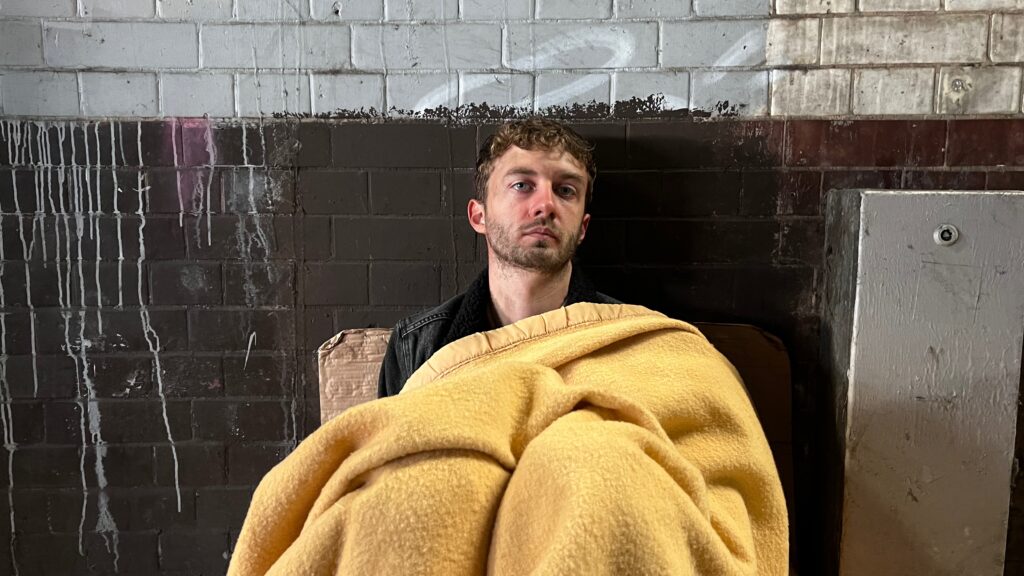Bryn has been taking his music into prisons for 35 years and sees the sad cycle of homelessness and prison. Often the two are linked.

COLD FACTS
Homelessness causes problems that increase the risk of reoffending. Without an address people can lack health support, ID to set up a bank account or to apply for jobs – these are essential basics required for people to successfully reintegrate back into our local communities. (Prison Reform Trust).
A third of offenders will lose their house while in prison, two-thirds will lose their job. Around one in seven are homeless or sleeping rough. In England there has been a 159% rise in the number of people living on the streets after being released from prison in the last year.
Here are some stories:
- It was a particularly cold winter and we were in Winchester prison. We’d met Paul* in prison the previous December. He’d since been released / re-offended and sent back to prison. He said ‘it’s hard to keep out of trouble living on the streets. There’s many of us living on the streets who just do crime in the winter to get a roof over their heads. No one will give you a chance when you’re homeless‘
- Seb*, an ex accountant now homeless, has lost everything since his conviction – his family, his home and his reputation. He deliberately failed to check in with the police after release as he had nowhere to live and didn’t want to go back to living on the streets. He was picked up for breach of parole and now has a prison roof over his head.
- A new report finds six in ten women are released from prison to homelessness. Lila* says ‘I was released homeless; I had nothing to go back to and I ended up on the streets working as a prostitute.’ She had been in prison, held on remand for 3 months and then acquited without charge.
- Women are more likely to become homeless after being released from prison than men, Ministry of Justice data shows. Once women have been released into homelessness, they are often more vulnerable than men due to domestic abuse or sexual exploitation.
- These stories represent thousands of prisoners trapped in the revolving door of prison and homelessness.
- Sam Cowie from St Mungo’s writes: if you want to address homelessness in Britain you’ve got to look at the population that are coming out of prisons with nowhere to live ….Sam says ‘people don’t want to hear about criminals being supported and that includes access to housing or services, and yet we know that prisons are full of young people who have come through the care system, been failed by it, and who have become institutionalised to the point of not functioning outside. .. She says ‘we’re not making excuses for bad choices…. but the alternative is we lock people up and do nothing,… it can cost around £50,000 a year to keep a person in prison, and that’s a lot of money especially if someone keeps going back again and again. Having a home goes some way in breaking that cycle.’